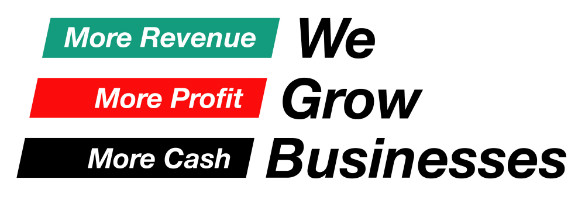Sometime after starting a business the time may come when you think about hiring employees. Demand for your product or service has grown and it’s too much to handle on your own. Our Small Business Guide to Hiring Employees lists some key points that we look for to decide if it’s the right time to hire.
Small Business Guide to Hiring Employees – Money!
Bad hiring decisions can get very expensive, very quickly. Our first rule of hiring employees is to assess how much money you have in the bank, and how much you’re likely to have in the months ahead. Assessing how much money you’ve got today is straightforward. Assessing how much you’re going to have in the future is a bit more tricky. The process we use at We Grow Businesses is as follows:
- We analyse how much cash the business has relative to its costs. Say a business has costs of £10,000 per month. If it has £10,000 in the bank then we would say they have one month of cost coverage. Typically we look for between one and three months of cost coverage – possibly more depending on the size of the business and salary of new employee.
- We analyse how much money is owed to the business via the receiveables.
- We analyse how much money the business owes to others, especially VAT and Corporation Tax liabilities.
- Finally we analyse the pipeline of work. Does it look like there is solid demand for the product/service in the months ahead?
If all these points look good then we’ve got some strong foundations on which to hire someone.
Finding Candidates
If you’re lucky, you might already know who you want to hire or the potential new employee approached you. However, in the majority of cases you need to search for a new employee. We recommend the following steps to our clients:
- Advertise via word of mouth – Put the word out to your family, friends and business contacts that you’re hiring. This is the cheapest way to hire someone, and can often throw up some good options.
- Online job boards – Websites like Indeed can sometimes yield good candidates. Feedback from our clients suggests that you can end up sifting through a lot of poor quality candidates, so it has the potential to be time consuming.
- Recruitment consultants – There are plenty of companies that will be willing to undertake a search and screening for you. Feedback from our clients suggests that this can be very expensive, and results can be hit and miss. We suggest this as a last resort, or if you are extremely short on time.
The Selection Process
Most of us have been through interview processes at various points during our lives, so we know roughly what it’s about. At a really high level, we have one main suggestion. Don’t just rely on a verbal interview. Some candidates can really talk themselves up during an interview, and sound like God’s gift to your industry. Ensure your hiring process includes some sort of non-verbal test. For example, a psychometric test to identify inherent strengths and weaknesses, or a practical test for example writing some code when hiring a software developer.
Getting Started
After your selection process there are a number of steps that you should take – some of which are legal requirements. Here are some of the key steps:
- Contract – Make sure you get a contract of employment drawn up, and give this to your employee to review and sign before giving them a start date.
- Probation period – We recommend writing a probation period into the contact. This basically allows you to get rid of the new employee at shorter notice (and lower cost) if it’s not working out.
- Pay and pensions – Assuming you’re putting your new hire on payroll then obviously you’ll need to add them to that, and in most cases add them to your auto enrolement pension scheme.
- Training periods – Your new hire is unlikely to know everything on day one. Expect to lose productivity and customers, especially if the employee if your first member of staff.
- Open communication – Be clear on what you need from your new hire, and when inevitably there are bumps in the road ensure there is open communication so concerns and queries can be easily raised and resolved.
Next Steps After Reading Our Small Business Guide to Hiring Employees
If you would like to know more about how to decide when the time to hire is right for you then you’re welcome to take advantage of our Free Business Growth Health Check.


